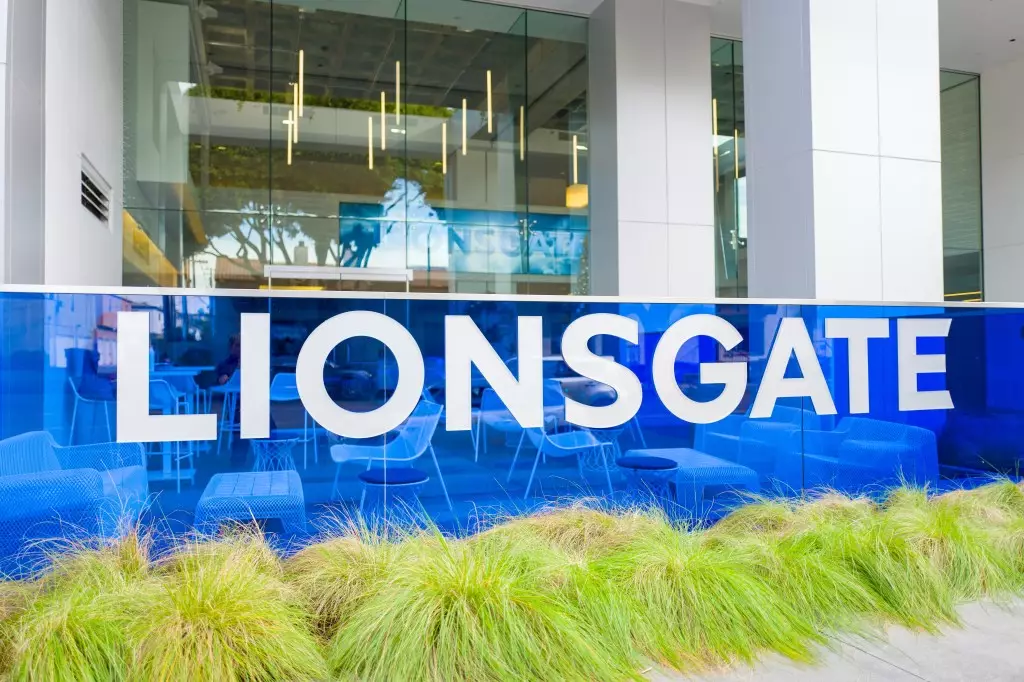In the burgeoning landscape of the entertainment industry, the recent news surrounding Lionsgate’s separation from Starz marks a pivotal moment in the evolution of both entities. Jon Feltheimer, the Chief Executive Officer of Lionsgate, has made it clear that the anticipated split will not occur until at least April of next year, citing the need for extensive regulatory reviews. This article explores the implications of this separation, the current financial performance of both Lionsgate and Starz, and what the future holds for these two distinct arms of the company.
The announcement of the delay in separation underscores the complexities that companies face in navigating regulatory landscapes. Feltheimer shared that the Securities and Exchange Commission (SEC) is still in the process of reviewing Lionsgate’s joint proxy registration statement. Such regulatory reviews can be a lengthy process, and as Feltheimer noted, the separation timeline will have to accommodate additional paperwork. This includes updating the financials to reflect a December 31, 2024, benchmark.
The anticipated shareholder meeting, which is projected to take place in mid to late April, is a crucial milestone, as the split will likely be executed almost immediately thereafter. CFO James Barge confirmed that this meeting will only be held once the SEC provides its final approval. With such critical steps still pending, the exact timing of the split remains uncertain, leaving shareholders and industry watchers in a state of anticipation.
Amidst the backdrop of corporate restructuring, Feltheimer highlighted that the streaming industry is reaching an inflection point. This shift plays directly to Starz’s strengths, particularly in the realms of bundling and offering digital services tailored for traditional linear television platforms. As competition intensifies, the need for agility and a well-defined business strategy has never been more necessary.
Starz aims to capitalize on the rapidly changing market dynamics, seeking to scale its business effectively. The separation presents an opportunity for both Lionsgate Studios and Starz to refine their respective business models, aligning more closely with the demands of contemporary viewers who increasingly seek content delivery through diverse platforms. This separation, therefore, is not merely about financial restructuring but represents a strategic pivot to better position both companies for future success.
Lionsgate’s recent third-quarter earnings report highlights contrasting fortunes within its two main divisions. On one hand, television production saw a remarkable surge in revenue, with an impressive 63% increase attributed to greater episodic deliveries and the successful licensing of library content. The segment reported a profit of $60.9 million, a significant leap from $9.1 million a year prior.
In stark contrast, Lionsgate’s motion picture division experienced a decline in revenue and profit, impacted heavily by tough comparisons against last year’s blockbuster hits. This discrepancy underscores the volatility of the film business, particularly as audiences become more selective in their viewing habits post-pandemic. Nevertheless, recent films have shown promise, with titles like “Best Christmas Pageant Ever” giving a much-needed boost.
Starz’s performance was less laudable, with both revenue and profit decreasing. However, the addition of 170,000 North American OTT subscribers provides a glimmer of hope amid otherwise sobering financial news. As both segments navigate their respective challenges, the need for a renewed focus on core competencies will be vital for revitalizing their prospects.
As Lionsgate and Starz prepare for their upcoming separation, the outlook for both entities remains a topic of fervent interest among investors and industry analysts. The split is expected to lead to two distinct companies, each with its own strategic vision and operational path. For Lionsgate Studios, the formation of stand-alone capital structures, supported by an $800 million revolving credit facility, signifies a robust foundation for future projects and financial stability.
Overall, the anticipated spin-off reflects not just regulatory hurdles but ongoing market evolution that necessitates agility and foresight. It remains to be seen how well both companies can adapt to the new landscape once separated. The coming months will undoubtedly be crucial in defining how Lionsgate and Starz leverage their individual strengths to thrive independently in an increasingly competitive environment.


Leave a Reply